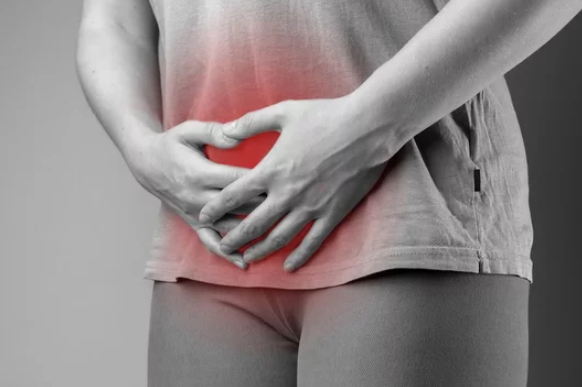Why Do I Keep Getting Thrush? Causes and How to Stop It



Thrush is a common yeast infection caused by a fungus called Candida albicans, affecting both men and women. It is usually harmless but can cause discomfort and is neither considered a bacterial nor a sexually transmitted infection. About 75% of women develop vaginal thrush at least once in their lifetime. Simple thrush infections are often easy to treat, and most women experience immediate relief from having medication.
However, despite adequate treatment, some women continue to get the infection (recurrent thrush). Thrush that stubbornly keeps on coming back can negatively impact a person's quality of life especially when it becomes difficult to determine where to start tackling these infections. In this post, possible causes of recurrent thrush are explored, along with available treatment options and tips for preventing repeated infections.
The vagina has natural defences such as mucus and healthy bacteria that protect it from excessive fungal growth. When these defences are disrupted by certain factors, fungi can enter and invade the vagina thereby causing the infection. Although it is not considered to be a sexually transmitted infection (STI), thrush can sometimes be caused by sex or transmitted between partners via intercourse. Also, vaginal thrush does not result from the lack of proper hygiene.
Often, no single cause of thrush is identified; but certain factors interfere with the vagina’s natural defences and increase the likelihood of developing the infection (and/or having recurring thrush). These factors include but are do not limit to:
Taking antibiotics
Exposure to oestrogen hormone - pregnant women, women of reproductive age, women who use hormone replacement therapy
Menopausal stage
Weakened immune systems - due to conditions such as HIV or medications such as chemotherapy or steroids
Poorly controlled diabetes
Damaged and/or inflammation of the skin around the vulva
Certain lifestyle choices - such as vaginal douching, frequently using panty liners, etc.
These factors may predispose you to develop thrush, but some women develop the infection (or experience recurrent thrush) without any apparent triggers. Experiencing any of these factors does not always mean a chance of suffering from recurrent thrush.
Thrush is considered recurrent if four or more episodes of the infection happen to a person within a year. About 5 out of 100 women who develop the first episode of vaginal thrush eventually struggle with repeated episodes of thrush infection. They may find that new the same infections reappear after treatment or that the persistent symptoms that wax and wane are severely experienced despite the completion of treatment courses.
The symptoms of recurring thrush are similar to a regular thrush infection. Some women may notice that symptoms disappear completely between infections, while others suffer from ongoing symptoms that can progress or worsen at various times. These symptoms can be the following:
Itchy and irritated skin outside the vagina (vulva) and (or) inside the vagina
Vagina soreness
Unusual vaginal discharge that is non-smelling and appears creamy white and thick (often called “cottage cheese”)
Pain when urinating
Pain during sexual intercourse
For the most part, it is not uncomplicated why some women suffer from recurring bouts of thrush. Some women simply seem to be more prone to develop thrush infections than others, and several factors can contribute to thrush recurrence.
It is worth reiterating the importance of completing the entire duration of treatment in any given circumstance. Treatment for previous episodes of thrush that did not completely clear the infection either due to a too-weak or too-short treatment cycle or improper administering is one identified factor that leads to the recurrence of infection.
The thrush is caused by Candida fungus that is resistant to standard treatments. About two in 10 women are reported to have recurrent thrush that is caused by the strain C. glabrata, rather than the more common Candida albicans.
Reinfection of thrush through sexual intercourse (the infection is transmitted back and forth between partners).
Conditions or situations that entail a high risk of developing thrushes, such as diabetes and a weakened immune system
Hygiene products can also cause irritation that can lead to a thrush infection. Frequent cleaning of your vagina during a period can also flush out the good bacteria which are necessary to clean the genitals naturally.
Repetitive participation in activities that irritate the vulva, such as using douches, scented soaps, tight-fitting clothing, etc.
The symptoms are not caused by the recurrence of thrush but instead by other skin conditions and infections.
The indefinite and complex cause of thrush recurring is what makes immediate consultation with a health expert always advisable in case of suffering from repeated episodes of thrush. Long-term treatments, unlike what is available over the counter, may be necessary. Thrush is not a sexually transmitted disease, but a sexual health clinic is also able to evaluate, diagnose, and treat women suffering from recurrent bouts of the infection. The itchy sensation in the vulva is not always associated with thrush; it can be caused by many other conditions. Only a healthcare professional can safely and properly diagnose the condition.
Even when a history of successful treatment of thrush in the past, it is best to see a doctor if experiencing any of the following:
Any of the above-stated symptoms that may suggest you have a condition other than thrush
Are pregnant or trying to conceive
Under 16 or over 60 years of age
Have diabetes
Have a weakened immune system (attributed to chemotherapy or long-term steroid medication)
Have had a previous STI (or worried about being possibly exposed to an STI, e.g. via unprotected intercourse)
Symptoms do not subside after taking an over-the-counter thrush medication
Symptoms that are in some way different from those experienced in a previous episode of thrush
History of having a negative response to anti-thrush medications

Consultation with a health professional aims to determine whether thrush is the actual cause of the symptoms experienced and to identify any factors that may make a person susceptible to the recurrence of the infection. If you suffer from a recurrence of thrush, your doctor may want to examine you and execute some tests such as the following:
Thrush is usually treated with a two-stage process. The first stage is for the doctor to prescribe anti-thrush medications to treat the ongoing infection. Known as the “induction course” of treatment, this usually involves either oral antifungals (Fluconazole) or intra-vaginal antifungals (Clotrimazole pessaries). A longer duration of treatment is likely to be recommended than has been taken for thrush infections in the past.
For the second stage of the process, two options are can be done, which are either having a course of treatment in case of the reappearance of the symptoms or completing a “maintenance course” of treatment which involves taking anti-thrush medication for about six months, aiming to significantly lower the amount of Candida present.
Both options are usually available with oral or intravaginal (pessaries) antifungals. The appropriateness of the treatment option and medication depends on individual circumstances, personal preferences, and past reactions to anti-thrush treatments.
Meanwhile, antifungal creams may also be prescribed to relieve vulvar symptoms (e. itching, soreness, and/or irritation) which are available in many pharmacies. A follow-up appointment is usually arranged at around 6 months, which can be done sooner should any concerns persist.
In rare cases, thrush can be transmitted between partners during sexual intercourse. Treatment is unnecessary if your partner does not manifest any thrush symptoms. However, it is always best to see a doctor for an appropriate diagnosis should you or your partner be bothered about possible symptoms of thrush in men which include:
Irritation, itching, redness, swelling, and (or) a burning sensation around the head of the penis and (or)under the foreskin
Pain on pulling back the foreskin
Painful urination and (or) sex
White discharge from the penis
An unpleasant odour around the genital region
Developing thrush during pregnancy is not uncommon. Although it does not pose harm to the baby, it is important to seek advice from a doctor or midwife for anti-thrush treatment, rather than trying to treat it yourself. Treating thrush during pregnancy or while breastfeeding is quite different which is the intra-vaginal administration of anti-thrush medications (e.g. pessaries or creams) for both singular infections, and the “maintenance course” of treatment for recurrent episodes of thrush.
Repeated use of thrush remedies to treat the recurrences is normally safe. A doctor must be consulted should the infection not go away after one treatment cycle. A thrush infection usually clears up within a week, but the antifungal treatment is recommended for up to 14 days. This duration should be entirely completed despite the disappearance of symptoms, as doing otherwise increases the chance of the infection coming back.
For recurring thrush, the treatment is usually taken for a longer period, possibly for up to six months. Long-term treatment with antifungal medication can cause the fungi to develop resistance against the treatment which the doctor will check for the patient.
Thrush infections may either resolve on their own or can be treated with antifungal drugs. These drugs help clear the Candida yeast which causes the infection. But, since Candida is a yeast that naturally lives on your skin, it can cause another infection in the future.
The fungus that causes thrush thrives in warm, moist, airless environments. There are some general lifestyle and behavioural changes you can make to prevent the growth of this fungus. These lifestyle changes can help prevent a single episode of thrush and reduce the risk of infection recurring.
Saying no to too much food with high sugar contents
Avoiding tight-fitting clothes and underwear
Avoiding perfumed soaps and deodorants on the genitals, opting for water and emollients (moisturizers)
Avoiding sex until a current infection is treated
Changing the underwear right after exercise
Regularly changing sanitary pads and tampons during a period
Taking showers instead of baths
Fully completing any courses of thrush treatment
Reducing stress and having a healthy lifestyle
Recurrences of vaginal candidiasis usually do not cause long-term health problems in women. However, suffering from recurring episodes of thrush can hugely affect your mood, sexual relationships, and overall quality of life.
The most salient step in addressing the issue of recurring thrush is to have an appointment with a healthcare professional to help you identify any factors that may predispose you to the infection and further prescribe the most appropriate treatment regimen for you. Treatments become most successful upon strict compliance with the doctor’s advice and completion of the full course.
If you want to determine if you have thrush or any other urinary tract infections, start your online consultation by clicking here.
Should you continue to have recurring thrush despite proper medical care, you may be referred to a specialist gynaecology or genitourinary medicine (sexual health) clinic. Most women who experience recurrent thrush have at least some reduction in the frequency and/or severity of episodes after a carefully completed treatment.
Plus get the inside scoop on our latest content and updates in our monthly newsletter.